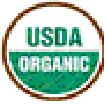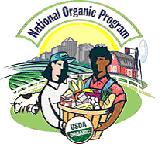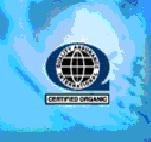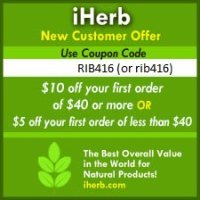
|
|||||||
Definition of Organic Foodby Webmaster, All4NaturalHealth.com The critical importance of the definition of organic food is for the benefit of the consumer. Along the path of its evolution, many people have had different ideas about what organic farming and organic food should be about. Essentially, though, the whole idea of "organic food" has several elements - environmental concerns, concerns with soil quality and fertility, and health issues being the key ones. Consumers who purchase their organic produce from small local farmers are able to speak directly with the farmers as well as observe his farming practices. However, with the growth in demand for organic foods, and for the benefit of consumers in cities, it became necessary to arrive at a compromise for an official definition of organic food, as well as for formal certification procedures to be put in place. This is done to enable consumers to know and be confident about the quality standards under which organic foods are grown and produced; tellingly, any sort of definition of organic food accepted by farmers and food producers would not be very useful if it did not provide this information / certification to food buyers. Animals can be considered organically raised if the following conditions are met: Organic certification - meeting the definition of organic food Organic certification, usually indicated by a label or symbol, and usually accompanied by the words "certified organic" or words to that effect, is a guarantee that the product and its raw ingredients have been produced according to certain standards set for farmers, food manufacturers, etc. Strict standards of quality for growing, handling and production have to be met. Typically, some standards which have to be met by organic farms and food manufacturers include: annual inspections; regular testing of the water and soil used; keeping of records of purchases and practices; and the requirement for a farm to be using organic methods for at least 3 years, before their produce can be certified as organic, i.e. no prohibited substances must be applied to the farming land in that time period. Surprise inspections are also carried out, while residue tests on organic products may also be conducted. According to regulations, organic foods must not contain artificial hormones, antibiotics, genetically modified organisms (GMO), hydrogenated fats, thousands of different kinds of artificial flavorings, chemical additives, chemical preservatives, etc, among other chemicals which are allowed in conventional food products. 

In the U.S, when a food product is labeled "organic", that indicates that at least 95% of its ingredients must be certified organic. When it is labeled "100% organic", then, well, I think that's self-explanatory. When it is labeled "made with organic ingredients", then the minimum proportion of organic ingredients is 70%. The 95% requirement also applies to Australia. In Australia, you may have seen the following label. Conclusion To assist with better selection of healthful food products, it is imperative that you pick up the habit of looking through food labels and scanning through the ingredients list. Click here to read more about buying organic food products. You may also want to read about the many advantages of consuming organic foods. Read More: More on Organic Food | Understanding Nutrition and its Importance | Nutrition Health Articles - Foods, Diets, Supplements, Nutrients and more | Information on some Herbs | Favorite Herbs, Herbals Formulas and Foods | Natural Health Supplements - What to Consider | Home Page | Site Search
Organic food is undoubtedly best for health. Wish to grow your own organic food? Click here to learn the secrets behind growing healthy organic food from someone who has been producing his own for over 17 years. To access another resource, a "take-you-by-the-hand" manual which teaches you how to create and manage your own organic food garden, even if you're a newbie, click here.
Organic-related Pages Introduction | What is Organic Food? | Definition of Organic Food | About Natural and Organic Food - some thoughts | Pros | Advantages of Organic Food Production & Consumption | Health Benefits of Organic Food | Benefits of Consuming Organic Meats | Organic Food Benefits Children Too | Eating Organic | Challenges of Eating Organic | Tips for an Organic Diet and Lifestyle | Buying Organic Food - some thoughts | Organic Food Cost - how to lower it | Distinguishing Natural and Organic Foods | More Information | Organic Blog, Websites, Books & Resources Tweet
Return from this page Definition of Organic Food to Understanding Nutrition and its Importance Return from this page Definition of Organic Food to All 4 Natural Health... attaining good health naturally... Home Page
|
Get Quality Natural Health Supplements at Affordable Prices. $5 or $10 discount for new customers [?] Subscribe To This Site
Tweet |
||||||
|
Site Search
|
|||||||
|
This website's content must not be reproduced or republished without express permission. Site Search The information provided on this website is not meant to diagnose, prevent, treat or cure any disease. It is to be taken as suggestions or educational material and not to be considered professional advice. Copyright© 2007-2014 All4NaturalHealth.com. All Rights Reserved. Home | Links & Resources | Privacy Policy | Disclaimer | Subscribe to E-zine | Site Search | Contact Us Return to top |
|||||||










New! Comments
Have your say about what you just read. Leave a comment in the box below.